Barcelona head coach Hansi Flick has reaffirmed he has no regrets about prioritizing player protection, despite Spain boss Luis de la Fuente expressing surprise at his remarks. Flick stressed the decision was about safeguarding his squad in a congested calendar and insisted the matter is now closed. The stance underscores Barça’s focus on workload management amid domestic and European aims. While some fans applauded the clarity, others questioned the tone toward the national setup. Still, Flick’s message is unmistakable: club welfare comes first, and the conversation moves on as Barcelona balance fitness, form, and fixture intensity.
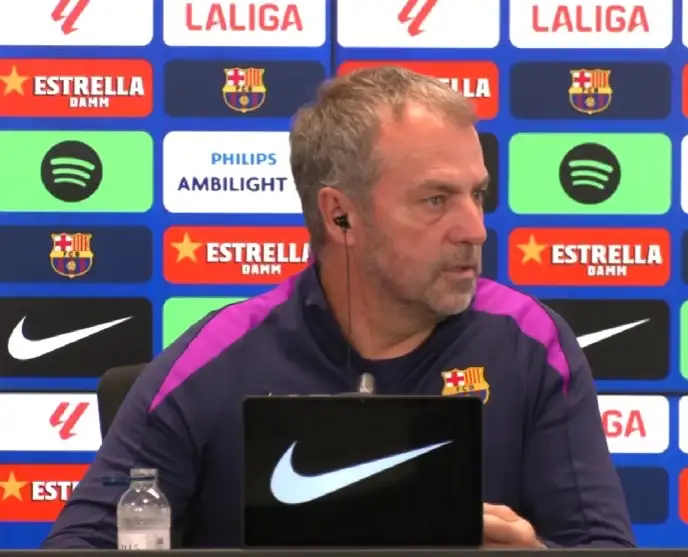
During a recent media briefing in Barcelona, Hansi Flick addressed follow-up questions about his earlier comments on player welfare and international commitments. He emphasized that his priority was shielding his squad in a packed schedule and reiterated that the decision was correct from his perspective. The exchange came after public remarks from Spain coach Luis de la Fuente, who said he was surprised by Flick’s words. Flick concluded by stating the situation is finished and the focus returns to football and upcoming fixtures.
Hansi Flick: "De La Fuente said he is surprised by my words? I'm not regretful about what I said. I wanted to protect my players and think about that situation. For me that was the right action. But now it's over."
@BarcaUniversal
Impact Analysis
Flick’s firm line on player protection reverberates across multiple layers: club performance, national team relations, and calendar politics. For Barcelona, the immediate upside is control. A manager who publicly stakes ground on workload management sends a clear signal to medical, performance, and selection departments: the threshold for risk is lower, and the bar for readiness is higher. That can stabilize availability in key stretches, especially around decisive La Liga weekends or Champions League knockouts.
However, it also tests the delicate cooperation with national setups. Spain, and by extension other federations, may interpret the stance as a challenge to their autonomy in squad management. That tension is not new, but explicit messaging raises expectations about data-sharing, training loads, and minute caps during international windows. If handled constructively, it can formalize better protocols; mishandled, it can spiral into club-versus-country flashpoints.
Commercially and culturally, the messaging plays well with a fanbase that has endured injury cycles and wants a sustainable path to trophies. It frames Barcelona as proactive custodians of talent, particularly for young stars with heavy minutes. The risk lies in perception: if results wobble, critics will say the caution was theater; if results thrive, it becomes the blueprint. Either way, Flick has moved the debate from reactive injury talk to a strategic conversation about availability as a competitive advantage.
Reaction
Fan chatter split along familiar lines. A sizable camp applauded the clarity: protecting players, they argued, should trump performative bravado in the age of muscle overload and fixture crush. Comments praising the stance emphasized responsibility and long-term planning, with some framing it as the new standard for elite clubs. Others took a more skeptical tone, joking that the rhetoric conveniently shields undercooked performances or flirts with undermining national priorities.
There were blunt takes that “there’s nothing wrong with protecting your player,” as supporters amplified the idea that elite coaching is as much about minutes management as tactics. Another thread celebrated the backbone within the dressing room—“protecting players > everything else”—interpreting Flick’s message as a morale anchor. On the flip side, a contingent mocked the logic, suggesting it’s paradoxical to lean on potentially injured players while speaking about protection, a jab at the perceived contradictions that often trail selection decisions.
Meanwhile, culture accounts and fan pages leaned into the long-view narrative—2023, 2024, 2025—casting Flick’s stance as a multi-season project rather than a one-off soundbite. A few off-topic promotional comments also surfaced, typical of high-traffic posts. Overall, the mood line trends narrowly positive, tilting toward support for a manager who is willing to own the message, accept the heat, and close the chapter publicly.
Social reactions
JUST HODL JUST HODL JUST HODL
500x.fun (@500xFun)
there's nothing bad in trying to protect your player
Sweep (@0xSweep)
Flick stands by his words. protecting players > everything else 👀
Vinci Wilson || The Daily Plug (@Vincijr2)
Prediction
Expect a short-term détente publicly and a quiet tightening of protocols behind the scenes. Barcelona’s performance staff will likely push for stricter pre-international monitoring: standardized wellness flags, minute thresholds before and after call-ups, and more frequent touchpoints with federation medics. Don’t be surprised if players returning from national duty undergo an extra microcycle of controlled workloads before rejoining full-intensity sessions.
On the Spain side, De la Fuente’s camp will keep the language diplomatic while seeking assurances on data transparency and training plans. If Barça’s stars hit form while staying available, this becomes a non-story by spring, a case study in mature collaboration. If a key injury erupts during an international break, the temperature spikes instantly, with a renewed tug-of-war over risk tolerance and player release.
Strategically, Flick’s stance will be echoed on matchdays: earlier substitutions for young or high-load starters, greater rotation in lower-leverage fixtures, and specific match plans designed to cap peak-demand sprints. The long game is clear—maximize availability for decisive La Liga fixtures and Champions League ties. If results follow, expect other big clubs to mimic the posture with louder voices and firmer lines in the sand.
Latest today
- Manchester United eye Manu Koné for summer 2026 - a made-to-measure fit for Amorim's midfi...
- Ruben Amorim aligns with Jason Wilcox as Man United sharpen January transfer plan
- Ruben Amorim on 3-4-3: identity first - what it means for Manchester United and player rol...
- Amorim flags United injury crisis - Bruno, Mainoo, De Ligt, Maguire and Mount doubtful
Conclusion
Flick has redrawn the boundary in plain sight: player welfare is not a soft concept but a strategic pillar. By refusing to row back after De la Fuente’s reaction, he’s accepted the scrutiny and framed the debate on his terms. That matters for a club aiming to control margins—minutes, freshness, and durability—every bit as much as shape, pressing triggers, or set-piece maps.
The real test won’t be in soundbites, but in availability curves across the run-in. If Barcelona’s core remains on the pitch when it counts, this will be hailed as decisive leadership; if not, it will be replayed as misdirection. For now, the practical effect is alignment: staff know the bar, players know they’re shielded, and external stakeholders know Barcelona won’t equivocate on risk. The coach said the chapter is over; the season will decide if the book endorses the thesis.








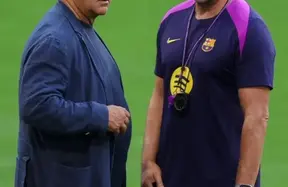
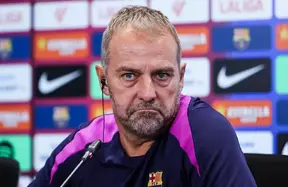
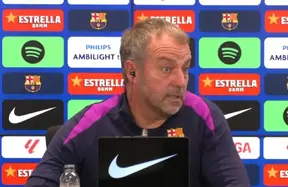
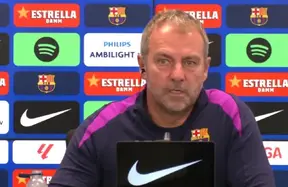
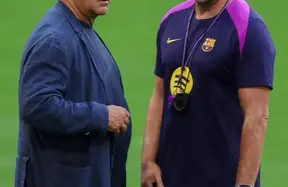
500x.fun
JUST HODL JUST HODL JUST HODL
HASSAN MUHAMAD
No
HASSAN MUHAMAD
??
Sweep
there's nothing bad in trying to protect your player
Vinci Wilson || The Daily Plug
Flick stands by his words. protecting players > everything else 👀
Luncca
How is that even possible, he wants injured 🤕 players to secure a win 😂🤣🤣🤣🧐
꧁☆Dr Saira Amber🇦🇪☆꧂®
Wow
꧁☆Dr Saira Amber🇦🇪☆꧂®
W